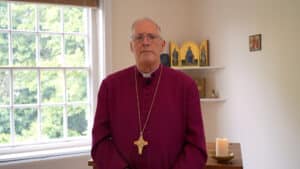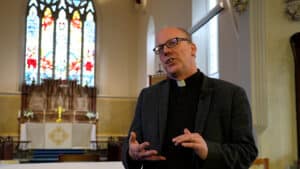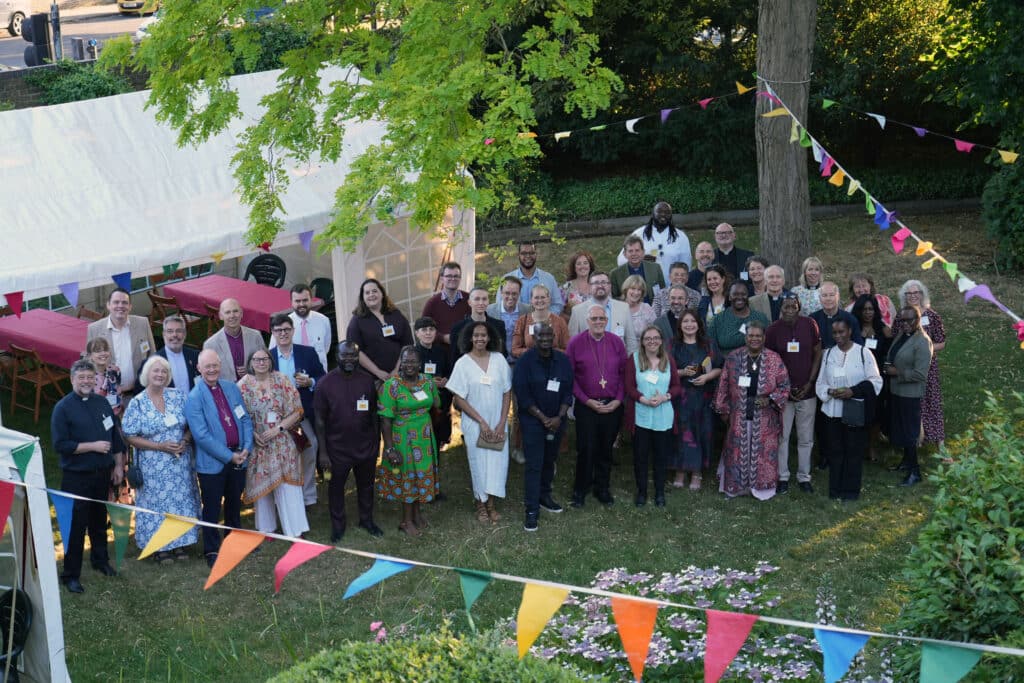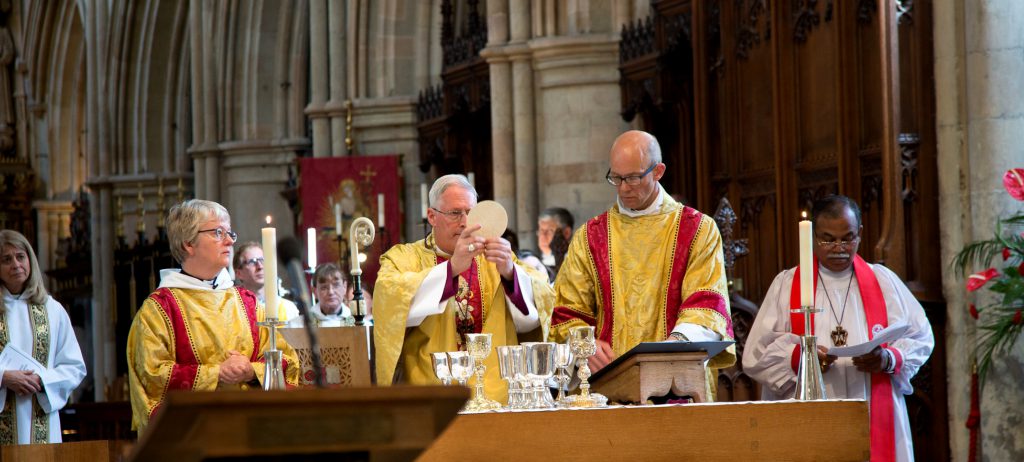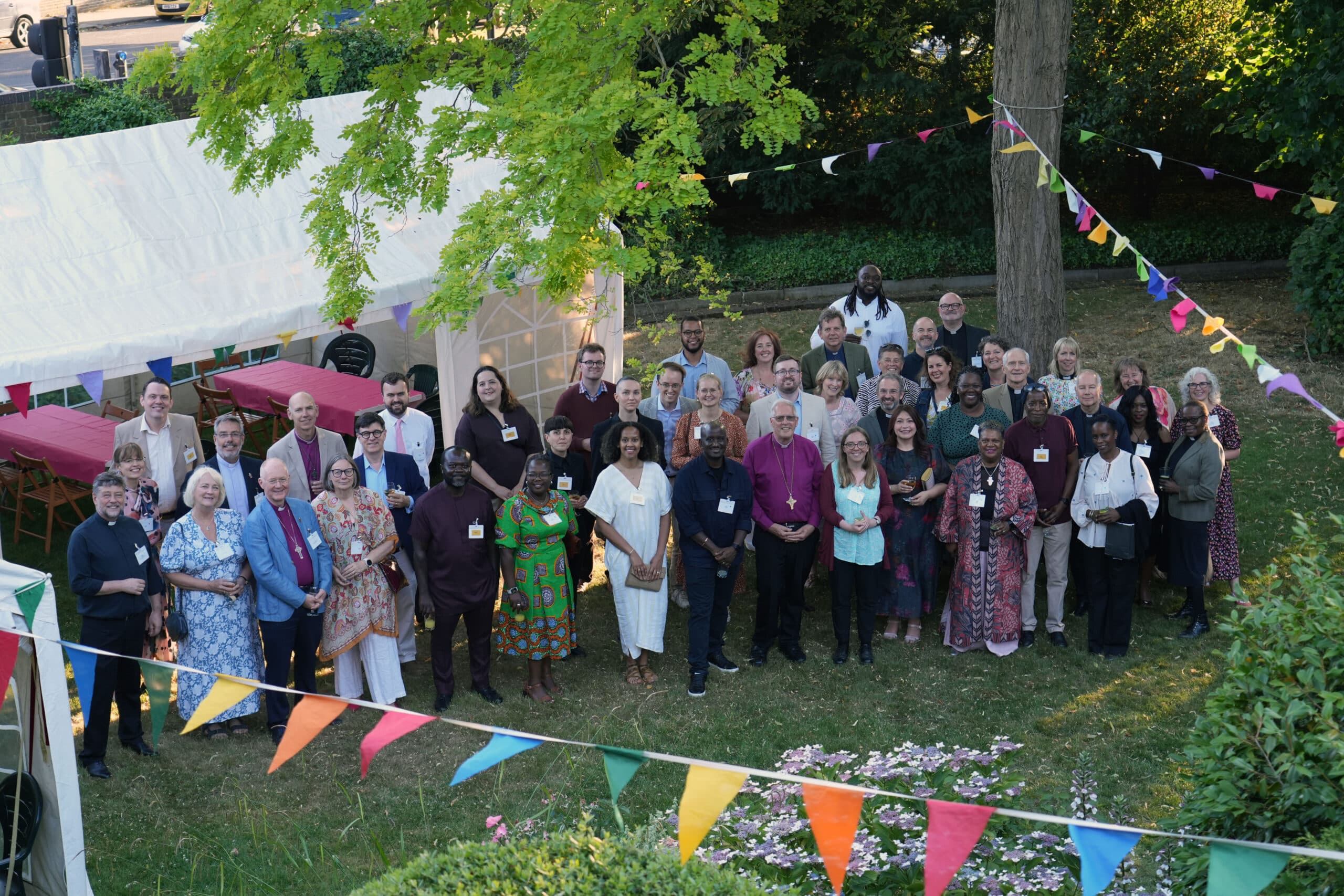Passiontide
During Passiontide our journey with Christ to Jerusalem and through the events of his Passion intensifies as we are called once more to identify with him in his suffering. We know there is no Easter Sunday, that there can be no Paschal joy, without first the Cross and the Tomb. With St Paul, we want ‘to know Christ and the power of his resurrection and the sharing of his sufferings by becoming like him in his death’ because we hope somehow, through God’s infinite mercy and grace, to ‘attain the resurrection from the dead’ (Philippians 3.10; NRSV).
In Passiontide we know that the Christian faith is unafraid of pain and suffering and can face it with unflinching directness. Christians do not glorify suffering yet we know that everything can be redeemed in the economy of God’s love and providence (cf Romans 8.28). Even at those moments where we feel most bereft of goodness, we never find ourselves completely abandoned for God has entered human suffering so deeply that we can even make Christ’s cry of desolation from the Cross our own.
Our world faces constant challenges that trouble us deeply: the ongoing wars in Gaza and Ukraine are with us daily with terrible suffering and much of it among women and children. There are other conflicts, too, that do not make the news in quite the same way. Alongside these, we are still facing fateful environmental challenges concerning climate change and environmental justice. In our nation inflation and the cost of living continue to take their toll, and we know that what happens in one part of the world affects us in ways that perhaps we had not readily understood before. Wherever we look there seems to be trouble.
In comparison with this, the internal challenges the Church faces can be seen in a new perspective. Why do we allow ourselves to be anxious almost all the time when we know that ‘the Lord is near’ even in the depth of deepest suffering? Let me be clear. In saying this, I am not referring to General Synod’s ongoing conversations about the Prayers of Love and Faith. I am interested in something broader. Nevertheless, the lack of trust and good will that has characterised some of the conversations that were part of the LLF process – and continue to characterise the national debates about the Prayers of Love and Faith – are symptomatic of something else within the life of the Church. The roots of our institutional anxiety are too deep to explore fully here – and people from different parts of the Church would identify different sets of causes. Nevertheless, we would do well to address this deeper anxiety as we move forward together, with the disciplined intention of speaking well of each other.
Anxiety is not one of our values
Our renewed ‘Southwark Vision’ – approved by this Synod at its last meeting – lays out our common Diocesan vision and shared Diocesan values. What we have chosen to value as a Diocese – and what therefore we choose to prioritise in our common life – is joy, justice, hope, love, community, humility, and hospitality. Anxiety is not on this list; it was never even on the long-list. Why? Because anxiousness reduces our capacity of joy and our commitment to justice. It eats away at our hope and coarsens our love. Anxiety undermines community. An anxious person is, paradoxically, not humble, and an anxious Church cannot be truly hospitable. ‘The Lord is at hand; do not be anxious about anything … And the peace of God, which surpasses all understanding, will guard your hearts and your minds in Christ Jesus’.
In Southwark Vision each of the values we cherish is articulated in two related ways: first, in relation to Christ, as we seek always to be Christ-centred; and, second, in relation to the world that God has given us to serve and the people for whom Christ died, because our baptismal vocation calls us to be outward-focused. To take one of our values, for instance, in prioritising love we undertake to love one another and commit to speaking well of each other. This is our Christ-centred articulation of that shared value, a response to Jesus’s prayer that we ‘may all be one … so that the world may believe that you have sent me’ (John 17.21; ESV). It is not wishful thinking, or a meek or managerial avoidance of difficult issues. It is a serious attempt to hold the well-being of our Christian brothers and sisters before our eyes, to intend good one for another, just as Christ intends good for us. Just as love needs another to be fully alive, so we need in a parallel and complementary way to be outward-focused and love our neighbours and our communities. Each articulation of our values – the Christ-centred and the outward-focused – complements and fulfils the other, deepening and strengthening the witness of our common life.
The Lord is near
In a similar way our anxiety can have two articulations, both with serious effects. If we are anxious when we should be centred on Christ, we empty the Cross of Christ of its power (cf 1 Corinthians 1.17). Effectively, we say that God’s provision is insufficient – that God himself is somehow insufficient – and allow ourselves to worry that it is we who need to make up the difference. If we are anxious when we should be outward-focused, we are likely to become suspicious and render ourselves unable to receive the world as the good gift from God that it is. Both tendencies are destructive; both stop us from flourishing the way that God intends.
My beloved brothers and sisters, as we enter Passiontide and Holy Week, let us not be anxious either for the Church or for the world. The Lord is near where there is suffering, and he is near in the power his Risen life. Rather, by prayer and supplication with thanksgiving let us make our requests known to God. Let us entreat him for the good of his Church and the well-being of the world, and let us work for the same, committed to speaking well of each other and being Christ-centred and outward-focused in all things.
The Bishop of Southwark, The Rt Revd Christopher Chessun*
*Adapted from the Presidential Address given to the Southwark Diocesan Synod on 16th March 2024




